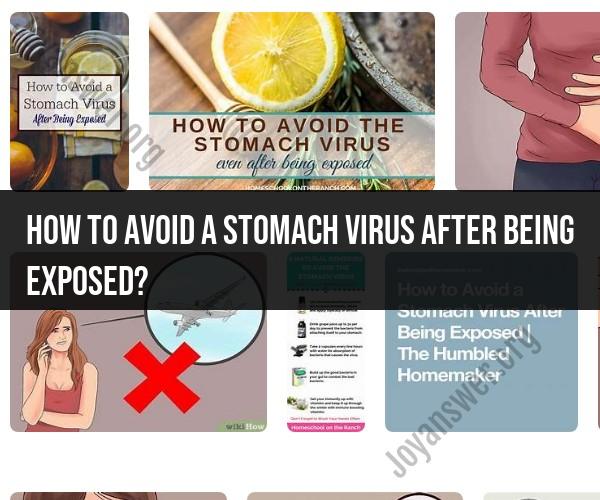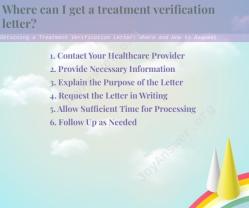How to avoid a stomach virus after being exposed?
Preventing a stomach virus after exposure can be challenging, but there are steps you can take to reduce your risk. Stomach viruses, often caused by norovirus, are highly contagious and can spread through contaminated food, water, surfaces, and close contact with infected individuals. Here are some prevention tips:
Practice Good Hand Hygiene:
- Wash your hands frequently with soap and water for at least 20 seconds, especially before eating, after using the restroom, and after close contact with someone who is sick.
- If soap and water are not available, use an alcohol-based hand sanitizer with at least 60% alcohol.
Avoid Close Contact:
- If you know someone has a stomach virus, try to minimize close contact with them until they have recovered. This includes avoiding hugging, kissing, and sharing utensils or personal items.
Disinfect Common Surfaces:
- Clean and disinfect frequently-touched surfaces and objects, such as doorknobs, countertops, and light switches, especially if someone in your household is sick.
Practice Safe Food Handling:
- Wash fruits and vegetables thoroughly before eating or cooking.
- Cook seafood, especially shellfish, thoroughly.
- Avoid consuming food or water that may be contaminated, such as undercooked shellfish or water from questionable sources.
Practice Safe Food Preparation:
- Wash your hands before and after handling food.
- Cook food to the recommended temperatures to kill any potential pathogens.
- Avoid cross-contamination by keeping raw and cooked foods separate and using different cutting boards and utensils for each.
Stay Hydrated:
- If you are exposed to a stomach virus, stay well-hydrated to prevent dehydration. Drink clear fluids such as water, clear broths, and oral rehydration solutions if needed.
Isolate the Sick:
- If someone in your household is sick with a stomach virus, isolate them as much as possible to prevent the spread of the virus within the household. Ensure they have their bathroom if possible.
Practice Respiratory Hygiene:
- Cover your mouth and nose with a tissue or your elbow when coughing or sneezing. Dispose of used tissues properly.
Avoid Touching Your Face:
- Refrain from touching your eyes, nose, and mouth with unwashed hands, as this can introduce the virus into your body.
Follow Public Health Guidelines:
- If a stomach virus outbreak has occurred in your community, follow any guidelines or recommendations provided by local public health authorities.
Vaccination (if available):
- In some cases, vaccines may be available to prevent certain types of stomach viruses, such as the rotavirus vaccine for children. Check with your healthcare provider for recommendations.
It's important to note that while these measures can reduce your risk of contracting a stomach virus after exposure, they do not guarantee prevention. Stomach viruses are highly contagious, and even with precautions, it's still possible to become infected. If you suspect you have been exposed or are experiencing symptoms of a stomach virus, seek medical advice and follow proper hygiene practices to prevent further spread.
Staying Healthy: How to Prevent a Stomach Virus After Exposure
If you have been exposed to a stomach virus, there are a few things you can do to prevent getting sick:
- Wash your hands frequently with soap and water. This is the most important thing you can do to prevent the spread of stomach viruses. Wash your hands for at least 20 seconds, especially after using the bathroom, before eating or handling food, and after being around someone who is sick.
- Avoid touching your eyes, nose, and mouth. Stomach viruses can enter your body through your eyes, nose, and mouth. Try to avoid touching your face as much as possible, and wash your hands if you do touch your face.
- Clean and disinfect surfaces that have been touched by a sick person. This includes doorknobs, countertops, and toys. Use a household cleaner that is labeled as effective against viruses.
- Avoid sharing food and drinks with others. Stomach viruses can be spread through saliva and fecal matter. Avoid sharing food and drinks with others, especially if you are sick or have been recently exposed to a stomach virus.
- Stay home from work or school if you are sick. This will help to prevent the spread of the virus to others.
Defense Strategies: Avoiding Stomach Viruses When You've Been Exposed
If you have been exposed to a stomach virus, here are some additional defense strategies you can use to avoid getting sick:
- Eat a healthy diet. A healthy diet will help to boost your immune system and make you less likely to get sick. Eat plenty of fruits, vegetables, and whole grains.
- Get enough sleep. Sleep is essential for good health and a strong immune system. Aim for 7-8 hours of sleep per night.
- Manage stress. Stress can weaken your immune system and make you more likely to get sick. Find healthy ways to manage stress, such as exercise, yoga, or meditation.
Minimizing Risk: Tips for Dodging Stomach Infections After Contact
Here are some additional tips for minimizing your risk of getting sick after contact with a stomach virus:
- Be careful about what you eat and drink. Avoid eating raw or undercooked food, and avoid drinking water from unknown sources.
- Cook food thoroughly. Make sure to cook food to a safe temperature to kill any harmful bacteria or viruses.
- Wash fruits and vegetables thoroughly. Wash all fruits and vegetables under running water before eating them.
- Store food properly. Store food in the refrigerator or freezer to prevent bacteria and viruses from growing.
By following these tips, you can help to prevent yourself from getting sick after exposure to a stomach virus. Stomach viruses are highly contagious, but there are things you can do to reduce your risk of getting sick.












